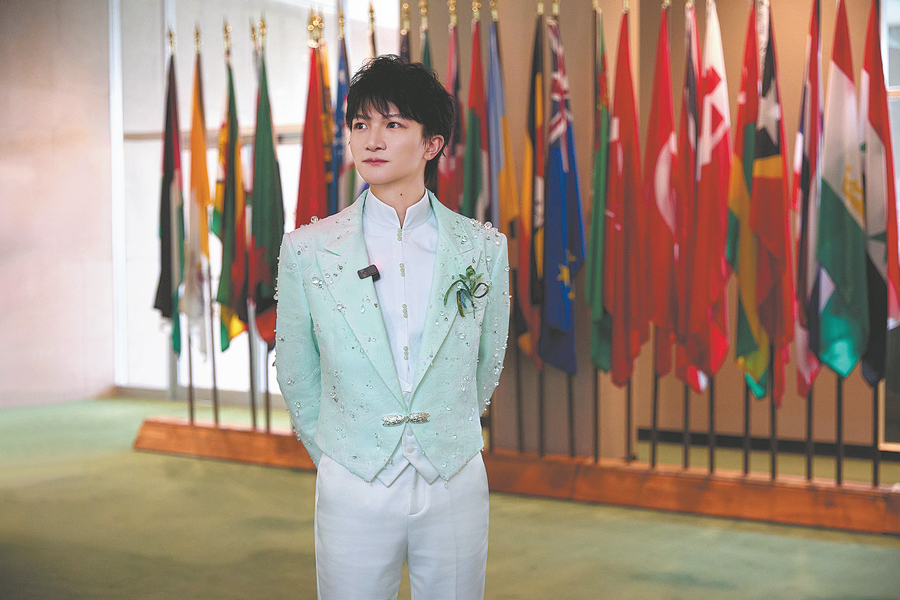

Talking about how he went from a mountain village in Hunan province to becoming one of the most popular singers in China, Zhou said that doing what he enjoys feels like the right thing for him to do.
"I think the right thing to do is to pursue what you enjoy and continuously explore your desires as you grow. I'm also figuring things out along the way, like which step may truly be my own? Follow your desires, or take steps that genuinely feel right when you take them," he said.
Born in 1992, Zhou grew up in a family from a remote mountain village. Up until the age of 6, he was often left at home by his parents and so music became his most important and precious companion.
"Especially when I was feeling down or sad, music comforted me. I was less confident and introverted as a child, and music allowed me to move from my own small world to the bigger world outside, step by step," he said during his speech on UN Chinese Language Day.
When Wu Zhongbei, clinical assistant professor of music and language at Alfred University in upstate New York, introduced one of Zhou's songs to the students in her guzheng (a zither-like traditional stringed instrument) class, she found that even those who didn't speak Chinese had already heard it.
"They all loved your song Big Fish," Wu said, recalling how after listening to the song, one student in her class expressed an interest in studying Chinese during the upcoming semester and even traveled to China earlier this year, and some of the students also sent Zhou cards with their best wishes written in Chinese.
As his most famous song, Big Fish has more than 2 million views on YouTube. The top comment on the video explains the vocal technique Zhou uses at the end of the song.
"It is called countertenor, and it is a falsetto singing technique. It has nothing to do with gender theory. He is a deeply skilled singer, singing beautifully," user halvardlund4782 wrote.
"How did they manage to hire an angel to sing this? Did they just fish one out of the sky or something?" user YolaroozXD wrote.
Zhou said he was proud to know his song was loved by people outside China and could serve as a bridge to spread Chinese culture.
"When I watch videos on the internet of foreign listeners reacting to Big Fish, I feel very proud. Because everyone thinks, 'wow, this Chinese music is very beautiful'. And they read the lyrics, as there are translations, and they say that the lyrics are meaningful and the song is very moving," he said.